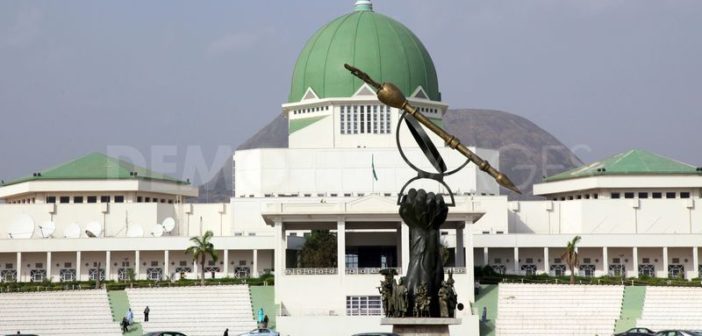The National Assembly has approved the 2017-2019 Medium Term Expenditure Framework (MTEF) and Fiscal Strategy Paper (FSP) and it also adjusted the crude oil benchmark from projection $42.5 to $44.5 for the 2017 budget.
The proposed 2017 budget was presented to a joint sitting of the National Assembly by the president on Tuesday, December 13, 3016.
The Senate had on Wednesday, November 23, 2016 considered the request of President Buhari on the 2017-2019 MTEF/FSP and referred same to a joint committee on Finance, Appropriations, and National Planning.
The other two parameters of the 2017-2019 MTEF/FSP remain unchanged as proposed by the executive arm of government. They are oil production target of 2.2 million barrels per day and N305 to $1 official exchange rate.
The decision of the Senate followed the consideration and adoption of a report by the joint committee, in compliance with the Fiscal Responsibility Act, 2007.
According to the report, the oil production target of 2.2mbpd is achievable but dependent on the ability of the federal government to curtail the Niger Delta militancy in order to halt the drop in crude oil production which declined from 1,912mbpd in January 2016 to 1,818mbpd in June 2016, and, thereafter, to 1,721mbpd in October.
On the crude oil benchmark, the Senate submitted that the international oil industry watchers had forecasted oil prices heading slowly towards an average of over $60 per barrel in the near term given global oil demand growth, hence it recommended the adoption of $44.5 per barrel as the benchmark price for this year’s budget instead of the $42.5 put forward by the executive arm of government.
On the adopted exchange rate of N305 to one US dollar, the Senate urged the Central Bank of Nigeria (CBN) to “initiate measures that will close the gap between the parallel market and the official exchange rate.”
For non-oil revenue, the Senate adopted a projected N5.122 trillion for non-oil revenue in 2017, and urged revenue generating agencies to intensify their revenue collection drive in order to boost the non-oil component of the revenue.
The Senate also adopted N807.57 billion for the federal government’s independent revenue projection for 2017. It also recommended the review of the legal framework of relevant Ministries, Departments and Agencies (MDAs) and government-owned enterprises in order to ensure that agencies pay operating surplus and remit appropriately their gross revenues to the Consolidated Revenue Fund (CRF).
On domestic and foreign debts, the Red Chamber voted for the 2017 borrowings, but insisted that they should be on project-tied basis, while on the National Social Development Programmes, the Senate urged relevant committees of the National Assembly to closely and constantly oversight the MDAs on the implementation of these programmes to ensure effective, widespread and representative targeting of beneficiaries.
For economic diversification, Senate recommended that the federal government implement drastic measures to achieve self-sufficiency and become an exporter of certain agricultural and mining products, among other initiatives.
In the same vein, the House of Representatives explained that it passed the 2017 – 2019 Medium Term Expenditure Framework (MTEF) and Fiscal Strategy Paper (FSP) as presented by the executive arm of government because it could not fault the financial estimations presented by the executive arm of government.




